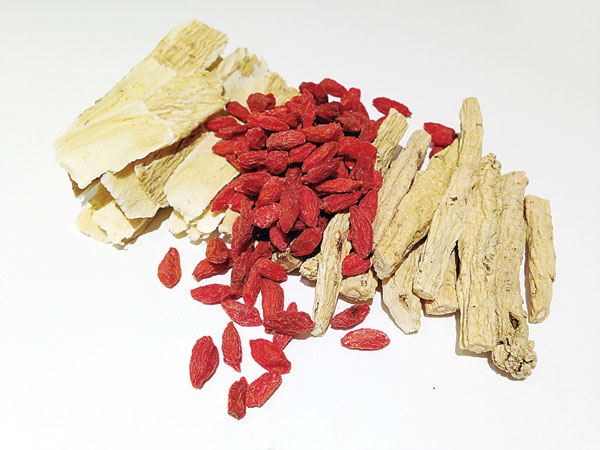Toning up with herbals
 |
|
Restoratives: Radix Astralagus, wolfberries and Radix Codonopsis. Dried figs, liquorice roots and fritillary bulbs. [Photo provided to Shanghai Star] |
As the weather gets colder, the body needs warmth inside and out. Pauline D. Loh examines the traditional concept of ‘Food is Medicine, Medicine is Food’ from the Chinese culinary perspective.
What you eat is probably the last thing you forget as ethnicity gets ruthlessly eroded in the invasive homogenization of the global village. In China, that desperate rush to catch up means much of our cultural heritage has been relegated to dank, dusty museums — with one exception.
Food is heaven
One of our most famous sayings goes thus: "To the people, food is Heaven", a saying attributed to Sima Qian, a historian from the Western Han Dynasty (206 BC-—AD 24), which was flourishing 200 years before Christ was born.
The proverb is still relevant today, with food permeating every aspect of Chinese life, from daily salutations to health to medical practices.
"Let food be thy medicine and medicine be thy food," Hippocrates the Greek said around 400 BC. The father of medicine and patron saint of doctors certainly had the same ideas as the Chinese traditional physicians, and chefs.
"We believe in eating according to season, and we tailor our dishes according to what is available in winter, spring, summer or fall," says Steven Ng, an executive chef with the Shangri-La Hotel and Resorts Group.
As a naive Cantonese, he is unshakable in his belief that soups are everyday tonics that maintain the delicate equilibrium of inner health. He serves his guests a vast variety of soups, with ingredients that warm or cool the body, according to season.
So in summer, Ng serves winter melon soup to get rid of humid vapors clouding the constitution. In spring, it is time for restorative but light soups such as watercress in a light meat broth.
















